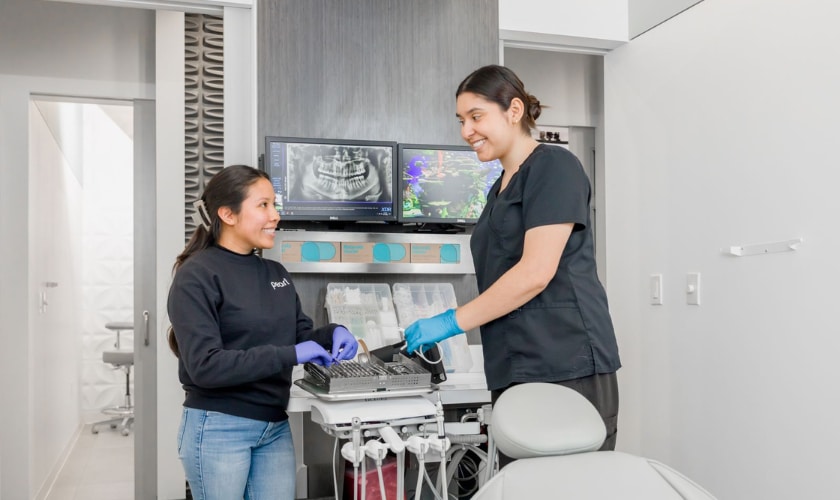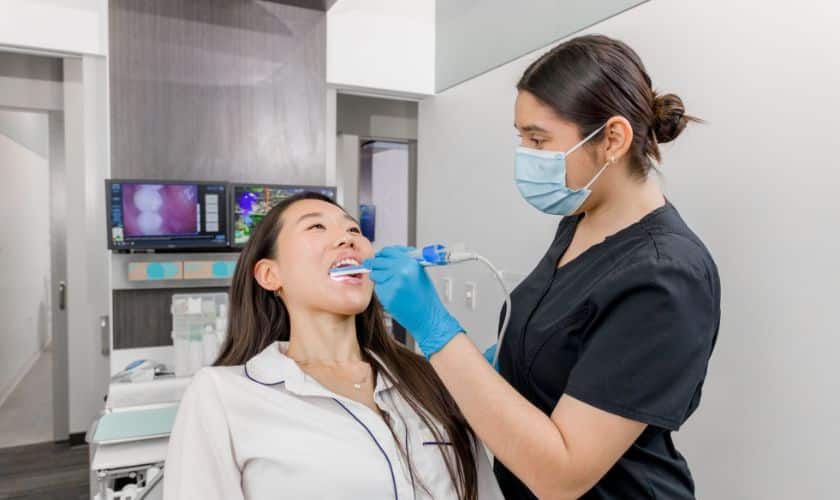Pearl Dental Blog

Why Skipping Dental Exams Can Cost You More Money in the Long Run
Are you guilty of skipping dental exams? It may seem harmless at the time, but did you know that it could cost you more money in the long run? Not only can neglecting your oral health lead to costly procedures down the line, but it can also negatively impact your overall health. In this blog post, we’ll explore why skipping dental exams is not worth the gamble and how investing in regular checkups can save you from financial and physical pain. So buckle up and get ready for some eye-opening insights!
What are the Benefits of Regular Dental Exams?
Regular dental exams are an important part of your overall health and well-being. They can help identify problems early on and provide the necessary treatment to keep your teeth and gums healthy. Here are some of the benefits of having regular dental exams:
1. Early detection is key to ensuring that problems don’t get worse – If you spot a problem early on, you can usually address it before it becomes more serious.
2. Dental work can be done more accurately and safely when the issue is detected early. If the issue is detected during a regular exam, corrective action may be taken much sooner than if it’s left untreated. It can save you time, money, and hassle down the line.
3. Good oral hygiene habits are essential for keeping your teeth and gums healthy – One of the best ways to prevent problems from arising is by taking good care of your teeth and gums from day one! By getting regular dental exams, you’ll catch any issues as soon as they start happening, which will help preserve your gum health.
Source – American Dental Association
The Risks of Not Having Dental Exams
- If you don’t have regular dental exams and cleanings, your teeth and gums may become infected. It can lead to tooth decay, which can cause serious toothache and even big financial problems down the road. In addition, a study published in the Journal of Periodontology found that people who have gaps in their dental coverage – either because they haven’t had a checkup in over two years or they’ve never had one – are more than three times as likely to develop advanced periodontal disease (a condition that destroys the teeth’s protective gums) than people who have had regular dental exams.
- The problem is compounded by the fact that tooth decay is often easier to detect once it has already progressed quite far. Unfortunately, it may be too late to save your teeth by then, and you may need extensive dental work – which could cost tens of thousands of dollars. So keeping your teeth in good shape is important – including getting regular dental exams.
How Often Should You Have Dental Exams?
- Regular dental exams are essential for keeping your teeth healthy and preventing decay. But how often should you have them?
- The American Dental Association (ADA) recommends having a dental exam every year for people aged 12 and older and every two years for people ages 6-11. In addition, the ADA recommends having a dental checkup every six months for children aged two and under.
- There are a few factors to consider when determining how often to have a dental exam. These include your age, health history, diet, lifestyle habits, and whether you have any signs or symptoms of tooth decay or gum disease.
What to Do If You Miss a Dental Exam
- If you miss your dental exam, there are a few things you can do to make sure the problem is manageable. First, make an appointment as soon as possible with your dentist. They can check for any signs of decay or other problems that may have developed since your last visit. If you can make it to the appointment, they may be able to schedule an exam remotely.
- If you have dental insurance, mention that you missed your appointment. Then, your insurer can cover some of a new exam or treatment costs. If you don’t have dental insurance, save all of your old X-rays and paperwork from your previous visits. That way, if you need help paying for a new exam or treatment, your dentist will have documentation that shows they are responsible for the costs.
- If you can afford a new exam or treatment immediately, consider borrowing money from friends or family. You may also be able to receive financial assistance through government programs like Medicaid or food stamps. In either case, be sure to ask around first to know what options are available.
Final Thoughts
Your dental health is essential for your overall well-being. A regular checkup can identify problems early and save you money in the long run. But what if you don’t go to the dentist? According to a study published in The Journal of General Dentistry, people who don’t visit the dentist are more likely to have more expensive dental problems down the road.
The researchers analyzed data from nearly 20,000 people participating in the National Health and Nutrition Examination Survey (NHANES) between 2007 and 2010. They found that those who didn’t-didn’t visit the dentist were twice as likely to have a problem requiring major surgery or treatment than those who did visit their dentist at least once a year.
Some of these problems included:
More than one-third of participants who had never visited a dentist had some form of tooth decay compared with just over one-fifth of participants who had visited a dentist at least once yearly.
More than half of the participants who never went to the dentist had some form of gum disease, compared with about one-third of participants who went to the dentist at least once yearly.
People who never went to the dentist were also more likely to need extensive dental work – such as extractions or fillings – later in life.



